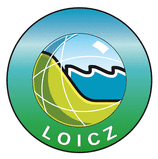State Management in Transition: Understanding Water Resources Management in Vietnam
For many years, water resources management in Vietnam was concentrated on activities ensuring the available freshwater for agricultural production, including flood control. With the increase of water demands and the emergence of new water usages since the late 1980s, this has subsequently changed. During the past two decades, and within the context of a broad economic transition process, the water sector has undergone a series of reforms, including various attempts to integrate environmental concerns; however, many challenges in water resources management still prevail to date.
This paper starts with a brief overview on the historical development of water resources management in Northern and Southern Vietnam, in order to identify the roots of the current system. It then focuses on state management institutions in the water sector, mapping out the administrative apparatus and legal framework in order to understand how state management in the water sector is organised and practically works. Accordingly, national policies as well as its implementation in practices are examined.
The paper concludes on the existing challenges for water resources management and indicates that the nation´s overall pro economic growth aspirations still dominate over environmental concerns. Moreover, the political and administrative systems lack provisions for integrated, sustainable and long-term planning. A centralist top-down approach still prevails; whereas locally diverse problems require local solutions.
Gabi Waibel
Full text: download




